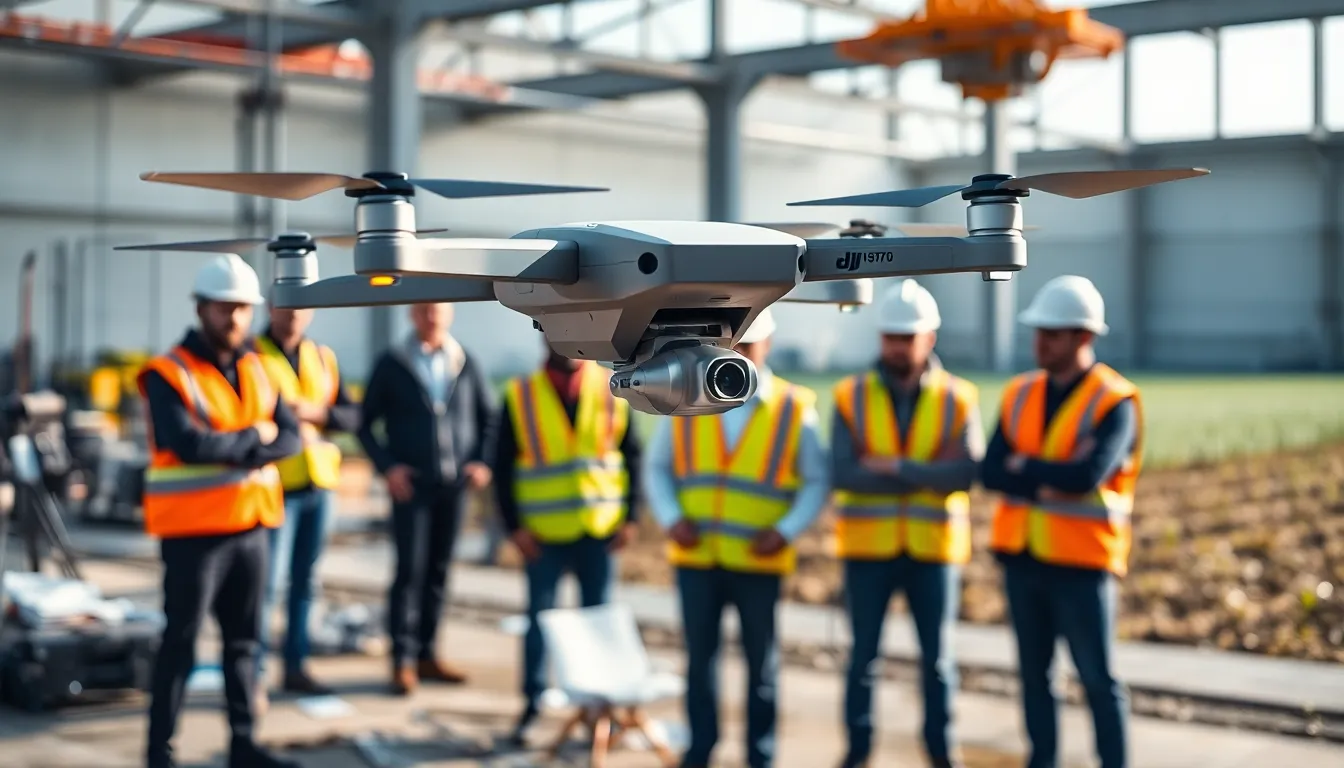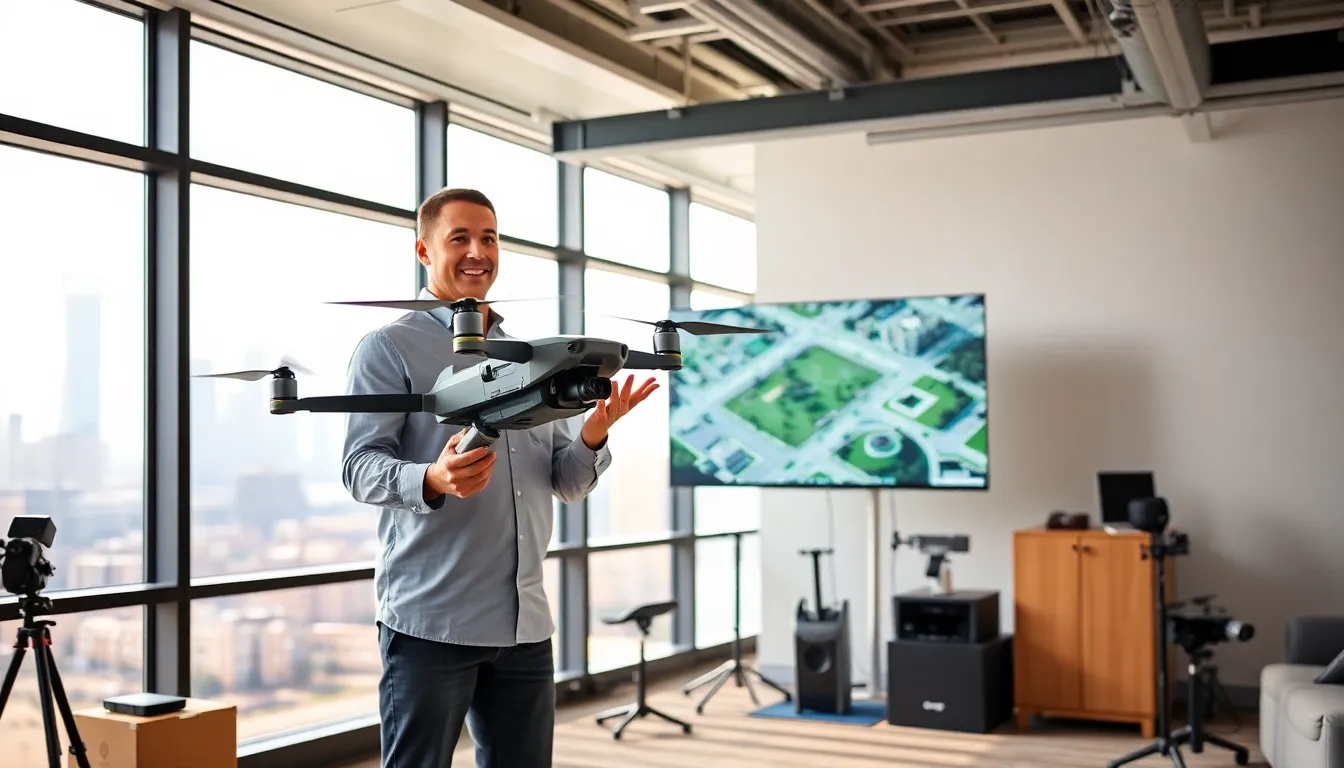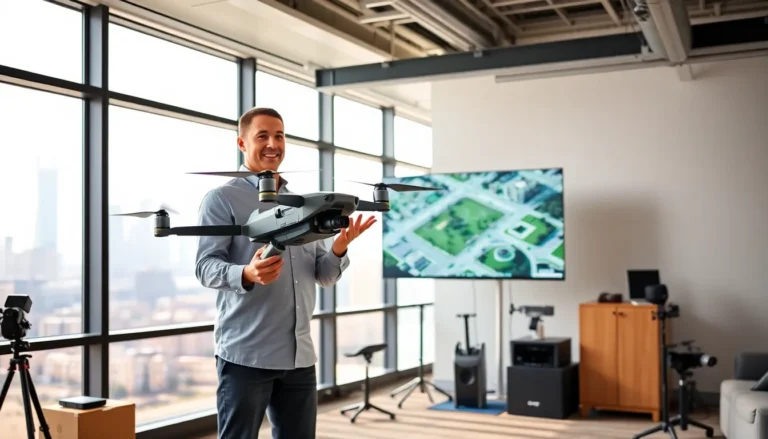Imagine soaring above the hustle and bustle, capturing stunning visuals or surveying vast landscapes with just the press of a button. Sounds magical, doesn’t it? Welcome to the world of DJI Enterprise drones. These flying machines aren’t just for amateurs: they’re packed with features designed to optimize efficiency and safety in professional realms. If you’re ready to jump into how these drones are revolutionizing industries, buckle up.
Table of Contents
ToggleOverview of DJI Enterprise Drones

DJI has established itself as a household name in UAV technology, particularly with its enterprise line of drones. These drones cater to a range of industries including agriculture, construction, public safety, and more. Unlike typical consumer drones, DJI enterprise drones come equipped with advanced technology aimed at enhancing operational capabilities. Their robust build, high payload capacity, and specialized accessories enable users to undertake complex tasks efficiently. From heat mapping to aerial inspections, these drones represent the pinnacle of aerial innovation.
Key Features of DJI Enterprise Drones
The allure of DJI’s enterprise drones lies in their impressive array of features. First and foremost, their high-resolution cameras provide crystal-clear imagery essential for detailed inspections. Many models include thermal imaging capabilities, allowing professionals to detect heat anomalies in buildings or monitor wildlife behavior in ecosystems without disruption.
Also, these drones have extended flight times, often clocking in around 30 to 50 minutes, enabling users to cover larger areas without frequent recharges. Enhanced GPS and obstacle avoidance technology ensure that they navigate complex environments safely. Finally, the ability to integrate APIs means that these drones can be customized to meet specific operational needs, maximizing versatility.
Applications of DJI Enterprise Drones
The applications for DJI enterprise drones are diverse and often transformative.
- Agriculture: Farmers leverage drones for crop monitoring, identifying areas in need of irrigation or pest control, thereby increasing yield and reducing waste.
- Construction: Site managers use them for aerial surveying, allowing for precise project planning and progress tracking over expansive areas.
- Public Safety: Fire departments employ drones equipped with thermal cameras to assess fire spread, providing critical data for evacuation and attack strategies.
- Energy Sector: Utility companies use drones to inspect power lines and wind turbines, reducing downtime and enhancing maintenance efficiency.
In each instance, the data collected can lead to better decision-making and improved outcomes.
Comparing Popular DJI Enterprise Models
When discussing DJI enterprise drones, it’s essential to compare some of the leading models.
- DJI Matrice 300 RTK: This high-end model is known for its versatility and endurance. With multiple payload configurations, it’s favorable in search and rescue operations and industrial inspections.
- DJI Mavic 2 Enterprise: Compact yet powerful, this drone is ideal for those needing portability without compromising capabilities. It’s perfect for inspections and surveillance.
- DJI Phantom 4 RTK: Known for its precision mapping capabilities, it is especially popular among professionals in the surveying and construction industry.
Each model has unique features, catering to varying professional needs and budgets.
Regulatory Considerations for Using Drones
Operating drones is not just about flying: it also involves understanding regulatory frameworks. In the U.S., drone operators must adhere to FAA guidelines, which require registration for drones weighing over 0.55 pounds.
Besides, getting a Remote Pilot Certificate is mandatory for commercial operations. Restrictions around no-fly zones, especially near airports or crowded urban areas, must be thoroughly understood.
Staying compliant not only ensures safety but also protects operators from potential legal repercussions.
Future Trends in Enterprise Drone Technology
The future of enterprise drone technology is bright, as continual advancements promise to take these flying marvels to new heights. Expect to see enhanced AI integration enabling autonomous flight and real-time data processing.
Also, as 5G technology proliferates, drones will benefit from improved connectivity, enhancing remote operations significantly. Sustainability will also take center stage, with developments in electric drones aimed at reducing carbon footprints. Also, increased drone swarm capabilities for collaborative task execution could revolutionize industries like delivery and agriculture.





